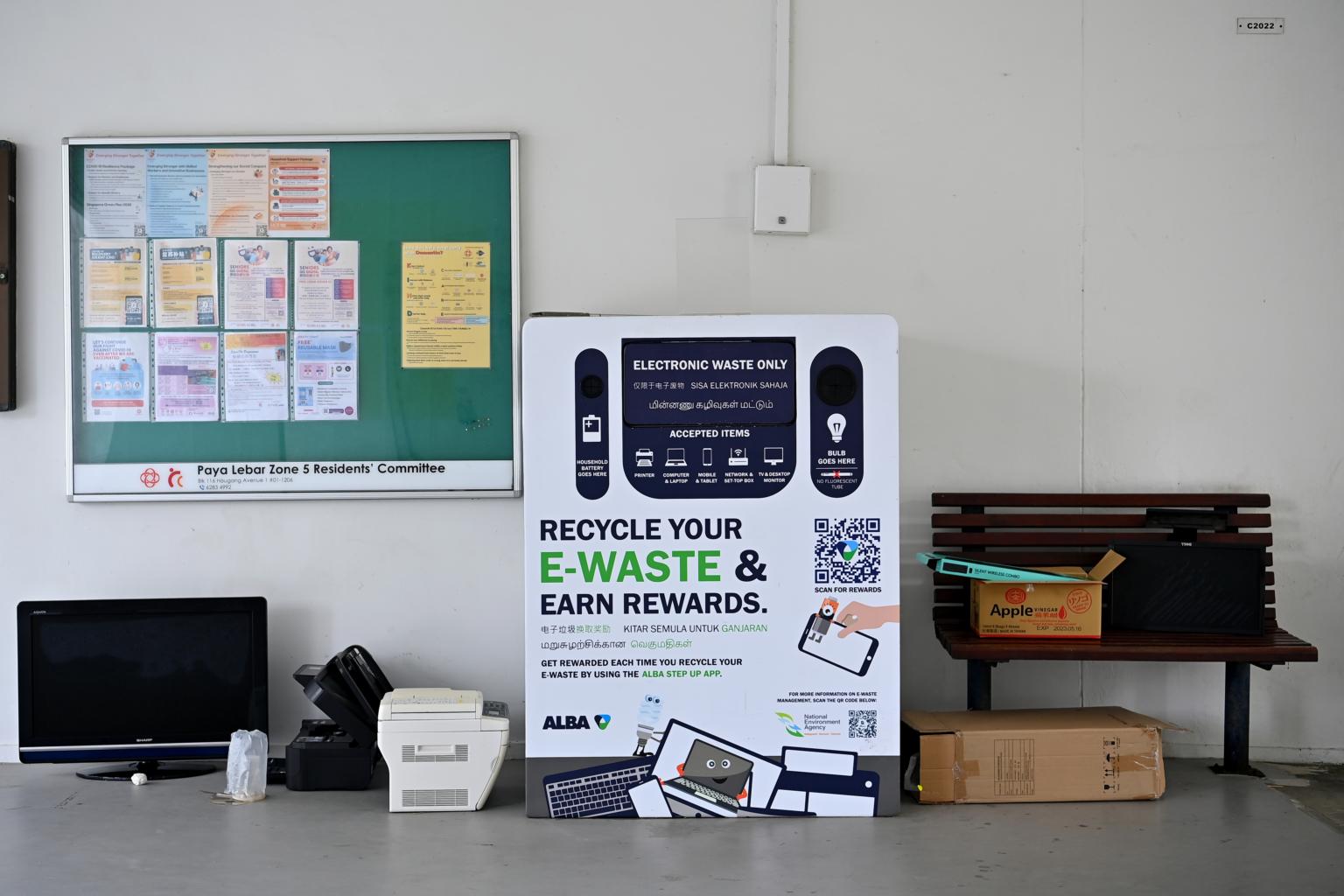Issues manufacturers face in recycling, recovering product waste can be resolved with new technologies
Sign up now: Get ST's newsletters delivered to your inbox

Singapore's domestic recycling rate fell from 17 per cent in 2019 to 13 per cent in 2020.
ST PHOTO: LIM YAOHUI
SINGAPORE - A policy to get manufacturers to recycle more of their products, whether packaging or electronic waste, could be stifled by attempts to "game the system", said Professor Seeram Ramakrishna, chair of the National University of Singapore's Circular Economy Taskforce on Friday (March 25).
This is one key gap in implementing a policy that places the responsibility of the collection and proper treatment of waste on producers, said Prof Seeram at a virtual panel discussion on managing waste.
He was referring to a policy known as the extended producer responsibility (EPR) approach, which aims to increase the recycling rates of consumer products and reduce waste.
Prof Seeram said producers can raise their waste collection targets through many innovative and creative ways, but the waste may end up not being recycled and upcycled properly.
"(The waste may be) collected and put in the incinerator, or taken somewhere else where nobody notices it, and maybe 10 years later, you find bunches of plastics, for instance, in the deep ocean or shores."
He added: "Within the Asia-Pacific, EPR is inundated with many challenges... If we want EPR implemented deeply and widely, the challenges include (having transparent and verifiable) information on waste collection, and (ensuring) that this policy is not used as greenwashing."
He suggested that the gaps in EPR policies can be overcome through emerging digital technologies such as blockchain or high-tech labelling of materials so that every unit of waste can be accounted for.
"We need to include digital innovations to make sure EPR schemes are properly implemented," Prof Seeram added.
The panel discussion on Friday is a curtain-raiser for next month's CleanEnviro Summit Singapore, a week-long conference where government officials, policymakers and players in the waste sector from various nations will discuss issues concerning the circular economy, climate resilient policies, and public health standards.
The virtual roundtable on Friday was moderated by Ms Jessica Cheam, founder and managing director of Eco-Business, a media and business intelligence organisation.
Although "circular economy" is a common catchphrase in the sustainability scene, a recent report by think-tank Circle Economy calculated that only 8.6 per cent of the global economy is circular.
Singapore's domestic recycling rate fell from 17 per cent in 2019 to 13 per cent in 2020.
Singapore's EPR scheme started last year with an e-waste management system, which includes more than 500 recycling bins islandwide for consumers to drop off their used electronics, such as smartphones, laptops, and batteries.
Valuable resources such as gold and copper are extracted from the e-waste for use in manufacturing new products.
E-waste is one of the nation's priority waste streams, alongside packaging waste - which includes plastics - and food waste.
Efforts are ongoing to extend the EPR to packaging waste. This will start with a return scheme for beverage containers, where consumers will receive a refund after returning used drink bottles or containers.
The National Environment Agency - which organises the CleanEnviro Summit Singapore - has been engaging industry players, academics and members of the public to design the beverage container return scheme.
A couple of panellists at the virtual discussion said they are "quietly optimistic" about Singapore's EPR scheme.
CleanEnviro Summit Singapore managing director Dalson Chung said: "The critical success factor will be the behavioural change of our people that will be doing the recycling, because taking out e-waste and putting it into a recycling bin is not a traditional habit."
Mr Lee Kok Kin, chief executive of SembWaste, the waste and recycling management arm of Sembcorp, suggested that producers can be further incentivised to innovate and test-bed solutions to recover and transform their waste.
"Producers also have to be aware of what they are producing and generating as waste, to reduce their waste to the lowest possible number," Mr Lee added.


